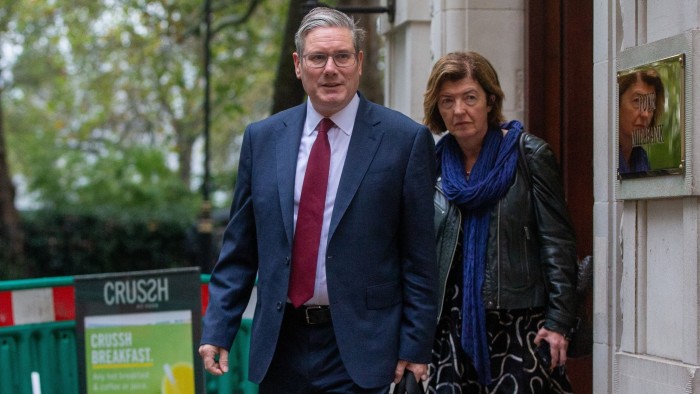Starmer plans peerages for ex-MPs whose exit made way for party favourites

Unlock the Editor’s Digest for free
Roula Khalaf, Editor of the FT, selects her favourite stories in this weekly newsletter.
Sir Keir Starmer is planning to award peerages to former Labour MPs who stepped down from safe seats ahead of the UK general election and made way for new party talent, according to people briefed on his thinking.
Labour officials said Starmer’s “political” list of party peerages was long and would include former MPs who stepped down shortly before the July 4 poll, which helped party bosses usher in favoured candidates as replacements.
Several party figures aware of the list said it included former MPs Lyn Brown, Kevin Brennan and Julie Elliott. The list also featured Thangam Debbonaire, who was in Starmer’s shadow cabinet but lost her Bristol West seat to the Green party at the election, they said.
An early draft of the list also included the prime minister’s former chief of staff Sue Gray, the figures said. Gray resigned in October after criticism of her performance and a period of infighting at the heart of government.
One person cautioned that Starmer could still change his mind on Gray. Number 10 declined to comment.
One senior Labour figure defended the practice of giving peerages to party veterans who were “proven workhorses in parliament” rather than scientists or leading business people.
They said political outsiders had a patchy record because often they did not understand the practical work of being in the House of Lords.
“I wouldn’t see this as pay-offs of some kind. We like to give them to ex-MPs and ex-party staff and union staff because they understand the work that the role involves,” the person said.
The prime minister has already ennobled a string of veteran former Labour MPs who stepped down this year: ex-parliamentary Labour party chair Lord John Cryer, plus former defence ministers of the New Labour era Lord John Spellar and Kevan Jones, who goes by the title Lord Beamish.
Starmer is axing 92 hereditary peers to try to trim the size of the Lords, which he has described as too “massive” with more than 800 members.
The government is likely to attempt to justify creating more peers by pointing out that Labour only has a relatively small presence in the upper chamber compared with its massive elected majority in the House of Commons.
Labour has just 187 peers against 273 Tories, 78 Liberal Democrats and 184 cross-benchers, who are not affiliated with any party.
Former Conservative prime minister Rishi Sunak had not yet submitted his resignation list of proposed peerages, current government officials said.
Former UK prime ministers have typically been entitled to a final list of peerages after exiting office. The officials warned that unless Sunak submitted his list almost immediately, it was unlikely that his proposed peerages could be vetted in time to be announced by the end of this year.
Tory party figures believe that former Cabinet ministers Michael Gove, Simon Hart and Alister Jack will be on Sunak’s list, alongside party chief executive Stephen Massey. Gove and Jack declined to comment. Hart said he had no knowledge of the suggestion. Massey did not immediately respond to a request for comment.
Some in the Tory party believe that Sunak is planning to break with the tradition of ennobling big party donors, a move likely to win plaudits from anti-corruption campaigners.
The possibility has prompted fears among some Tory party figures that it could have a chilling effect on future donations, at a time when the Conservatives are severely strapped for cash.
An ally of Sunak said: “There’s been lots of speculation, much of it wrong. But we are not going to get into giving a commentary on this process.”
Sunak has already elevated his former chief of staff Liam Booth-Smith to the Lords in the dissolution honours list that marked the end of the last parliament in July.
Discussions are under way in government about Starmer pressing ahead with publishing his latest list of Labour party appointees alongside the new year’s honours list, which the government says “recognise the achievements and service of extraordinary people across the UK”.
While there is precedent for issuing the lists simultaneously, including last December when Liz Truss’s resignation peerages and honours lists were published at the same time, some government figures fret it would risk irking Buckingham Palace. All honours are issued in the name of the King.
Government officials said the Liberal Democrats were set to be offered several peerage nominations, after winning a record number of MPs at the general election. The party received one nomination in the dissolution honours in July, their first in almost a decade.
#Starmer #plans #peerages #exMPs #exit #party #favourites





